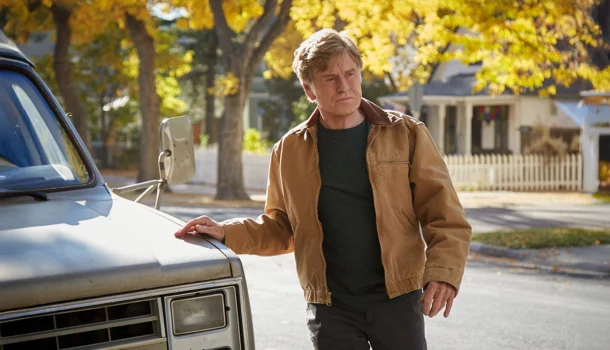It’s curious how existence insists on not explaining itself. We fall into it with involuntary ease, as if someone had pushed us without warning onto a stage already in motion, with lines we don’t know and an audience we never asked for. Even those who believe they control their own days soon discover that stability is a thin disguise for constant vertigo. The unexpected, which we claim to fear, is also what we secretly long for — not to save us, but to give us one more reason to go on. The human being, this unfinished project of lucidity and misjudgment, carries within a paradox that defies resolution: waiting for better days while sabotaging their own flickers of joy. And when life whispers with sweetness, we raise emotional walls that demand others’ permission to be fully lived. Suddenly, in the echo of an ordinary afternoon, everything has already gone. And what remains is the lack of courage to have been whole when there was still time.
“Our Souls at Night” moves along that boundary where routine ages with the body and silence speaks louder than any plot. The film resists easy labels, choosing instead a hesitant rhythm that mirrors life itself — this story that never quite decides between tragedy and farce. When Jane Fonda, without hesitation, invites Robert Redford to spend the night in her home — not out of sexual desire, but from the urgent need to share the darkness — the film breaks with the conventional codes of romance and places itself in a slipperier, more truthful territory. What could seem like a mere eccentric gesture is revealed to be a muffled cry against the isolation imposed by old age, against the rigidity of social roles that imprison even those who no longer have anything to lose.
It’s impossible to ignore the symbolic weight of Fonda and Redford, two faces that shaped the romantic imagination of generations. In “Barefoot in the Park”, half a century ago, they embodied the freshness of a youth willing to reinvent love with lightness and freedom. Now, older and aware of the scarcity of time, they become distorted mirrors of that early couple: still open to affection, but conscious of the fractures time has imposed. And it’s in this encounter with their own past images — both fictional and real — that the film finds its true power: the sense of circularity in human experience, where every affection once lived or abandoned returns in a new form, demanding a different kind of surrender.
Ritesh Batra shapes this emotional journey from the novel by Kent Haruf, adapted for the screen by the experienced Neustadter and Weber. The narrative embraces a measured aesthetic, where Goldenthal’s score — marked by a soft banjo and echoes of classic country — helps imprint an almost pastoral tone. Stephen Goldblatt’s cinematography follows the same logic: it alternates light and shadow not as opposites, but as elements that belong together. The effect is that of suspended time, a rare pause in the rush of everyday life. In that vacuum, the story can unfold without needing to justify itself constantly — and that, in itself, is a gesture of trust in the audience.
Even though the plot is not built on major revelations, its strength lies in the attention to detail: in the way Addie offers her vulnerability with disarming simplicity, or how Louis responds with a rigidity that’s less pride and more fear. The references to the characters’ pasts — and the actors’ — intertwine, building an atmosphere where fiction feeds on biography. When Redford’s character is seen among his old friends, including one played by Bruce Dern, the film doesn’t just comment on aging, but also on how society’s gaze continues to trap intimacy within outdated conventions — even among those well past seventy.
Their journey doesn’t avoid melancholy, but it is faced with dignity. Addie’s insomnia, treated not as a pathology but as a legitimate restlessness of a body still yearning for warmth, finds a silent answer in Louis’s presence. Still, the children of both — representing emotional inheritances left unresolved — appear as shadows of unfinished business. But what perhaps moves the most is the realization that, even under family pressures, these two characters manage to keep choosing each other, however cautiously, however reservedly.
There is no definitive answer at the end — and perhaps that is the film’s most honest gesture. Like the protagonists themselves, it refuses to declare victory or defeat. What remains is the echo of a persistent longing, the reminder that, even when the world seems to no longer belong to us, we can still find meaning in the sharing of a night. And maybe, just maybe, that’s what life is about: not about triumph, but about gently resisting the silence.
Film: Our Souls at Night
Director: Ritesh Batra
Year: 2017
Genres: Romance/Drama
Rating: 8/10

